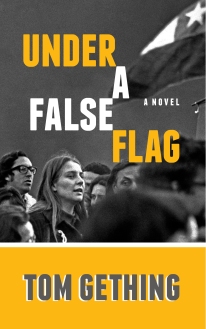 Edith Pearlman, winner of this year’s National Book Critics’ Circle Award, has quietly published dozens of fine stories over the last forty years in small literary magazines. Although many were selected for anthologies and “best-of” awards, few readers had heard of her until the University of North Carolina Wilmington published Binocular Vision, New and Selected Stories in 2011.
Edith Pearlman, winner of this year’s National Book Critics’ Circle Award, has quietly published dozens of fine stories over the last forty years in small literary magazines. Although many were selected for anthologies and “best-of” awards, few readers had heard of her until the University of North Carolina Wilmington published Binocular Vision, New and Selected Stories in 2011.
Pearlman mainly writes about women. Most are Jewish. Many are older, smart, and career-minded. Some are refugees. Though her style is understated and direct, she captures the subtle changes in her characters’ lives with fresh, well-placed metaphors.
A doctor living in a Central American country, working as health minister for a precarious liberal government, impulsively gives a precious diamond to a poor young mother, despite knowing that she herself will need the money it would bring when she is forced into political exile.
A young American teenager observes a poker game between her parents and their rabbi the night before her synagogue receives a Czech torah, and she begins to comprehend the delicate ramifications of chance in all of their lives.
Another doctor confronts a fatal illness and confidently takes her life into her own hands.
An Asian man immigrates to Israel as a caretaker and brings hope and life to the downcast residents of a poor apartment complex.
These stories don’t startle or shock; they build to a soft boil with detailed observation. In “Hanging Fire,” for example, Nancy, a plain twenty-one-year-old “whose long chin had been designed as a bookmark,” returns home to Maine after graduating from college and attending a friend’s wedding. In the long dull summer she comes to terms with her choices after being rejected by the local tennis pro for whom she carries a flame:
“Nancy soared. She felt detached, exalted. To be defeated, she realized, is also to be disburdened. One travels lighter. Nevertheless…Leo’s cough drop eyes shone.” She imagines the passionate encounter that will never happen. Still, she’s strong enough and wise enough to turn down a pale suitor from college whom she doesn’t love.
In Pearlman’s stories, there is a frank acknowledgment of changes beyond the individual’s control, of life leading to sadness, grief and death. What illuminates each is Pearlman’s respect for the dignity of life, the defiant gesture and, ultimately, the acceptance of what is.





Hey — good summation. It’s her slow build that I appreciate the most and the keen observation of a certain type of human idiosyncrasy that slips by many of us unnoticed. As I think we discussed, though, the stories are best taken as daily capsules — you can’t down the whole batch at once without feeling a little sick!
If you’re reading short stories, you might like Maile Meloy’s collection Both Ways is the Only Way I Want It, most of which are set in Montana.
How was your hike in the Cascades?!
Thanks for introducing me to her. The hike was to the Olympics, and they were incredible. The wildflowers were all in massive bloom–avalanche lilies, glacier lilies, columbine, thistle, lupine, mouse on a stick, phlox and paintbrush. I felt like I was in the Sound of Music and half expected Julie Andrews to be twirling over the next ridge. We did 30 miles and 3000 ft. of ascent in 3 days. I was tired and sore at the end.
Enlightening review. Feels as if you’ve projected the Pearlman style in your essay. Simple direct and respectful. Nicely done. Thanks.
Thanks, Mark!
I love the line “These stories don’t startle or shock; they build to a soft boil with detailed observation” – you have such a way with words….
Thanks, Letizia. She’s an interesting writer. I admire the fact that she has produced a lot of quality stories without much acclaim over the years.
Enjoyed your review. And thanks for liking my blog post. Best wishes.